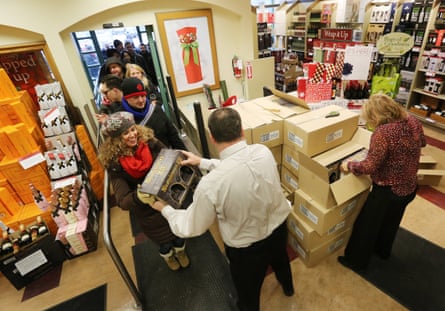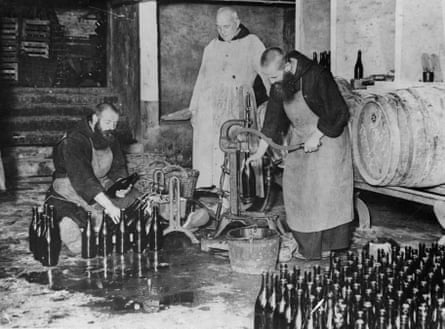Even at £9 a bottle, beer from Saint Sixtus abbey was flying off the supermarket shelves. Until the monks found out.
Angry Trappists from the 19th-century Cistercian monastery in Westvleteren, west Flanders, have accused the Dutch supermarket brand Jan Linders of a breach of their “ethical values” for selling the brew.
Under the abbey’s rules, the beer, produced on-site by 20 monks, is only available by the glass at a “meeting centre” or by the crate under strict conditions. Indeed, according to the Saint Sixtus abbey’s website, those seeking to buy bottles of Westvleteren in bulk must have “a lot of patience and luck”.

A buyer may reserve a maximum of two crates of 24 bottles every 60 days at a price of £31 to £39 a crate. They must pick them up at the gate of the abbey at the agreed date and time having registered the licence plate of their car in advance. Westvleteren is one of only six Trappist breweries in Belgium, and its convoluted rules reflect the almost mythical regard in which Trappist beer is held.
Saint Sixtus abbey’s beer production was outsourced between 1946 and 1992, over fears that its commercialisation was getting in the way of spiritual works.
The discovery, then, that the Jan Linders supermarket chain, without the permission or knowledge of the abbey, had been selling three types of the renowned beer at about five times the price charged by the monks caused considerable dismay.

A spokesman for the abbey said: “A price of nearly €10 per bottle goes against the ethical standards and values that the monks face. Every beer lover knows that the Trappists of Westvleteren do not pursue profit maximisation, they only produce as much beer as is necessary to provide for their livelihood. All the profits made go to the abbey charity.”
One of the Trappists’ offerings, a dark heavy beer with a 10.2% alcohol volume, has been repeatedly voted as the best beer in the world.
A spokesman for Jan Linders told the Dutch newspaper De Volkskrant the supermarket had wanted to reward loyal customers with the specialist beer, and had allowed the purchase of a maximum of two bottles at a time.
He said that while the stock of 300 crates of 24 bottles sold within hours, with reports of customers queueing outside, the supermarket’s profits were negligible as it needed to pay off unidentified suppliers.

Gineke Wilms, the company’s marketing manager, said: “The beer was purchased through a number of links, which is why the price was this amount. We emphasised to the abbey that we had really good intentions. We respect the exclusivity of beer enormously.”
An abbey spokesman said: “We especially hope that it will not happen again.”
